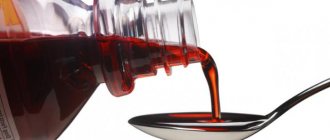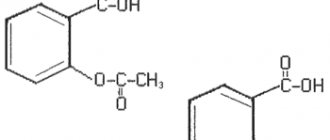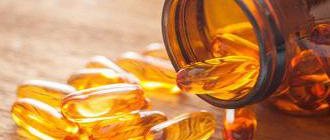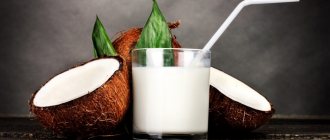Content
- 1 Caffeine 1.1 Effects of caffeine
- 1.2 Mechanism of action of caffeine
- 3.1 Trained athletes perform better
- 4.1 More on caffeine
- 6.1 Caffeine in sports nutrition
- 7.1 About the dangers of drinking coffee
Caffeine for sports
Caffeine has found application in many areas, including sports. It is added to energy drinks, fat burners, pumping and pre-workout complexes.
To get the necessary boost of energy, increase endurance and improve athletic performance, you need to take the required amount of caffeine at a certain time before training. The recommended period of use is indicated in the instructions for use and depends on the form of the product (tablets, capsules or drink).
It is worth understanding that over time the body develops tolerance to caffeine, so in the period before important competitions it is necessary to significantly reduce the dosage or eliminate the intake of this substance completely. Then the use of this stimulant at the most crucial moment will cause the desired effect.
In sports nutrition, caffeine is more often found in drinks. They easily quench thirst, and, as already written above, have a faster effect on the body. Another option is ampoules with a liquid solution. They are small in size, making them convenient to carry with you for immediate use before training.
Caffeine[edit | edit code]
| What is caffeine | |
| Caffeine is classified as a pharmaceutical compound (medicine) rather than a nutrient, but caffeine is often considered a dietary supplement because it is found in many everyday foods, such as coffee, black and green tea, colas, chocolate, some energy drinks, sports drinks and energy gels. However, the caffeine content of coffee can vary greatly depending on the method of preparation. | |
| Effect of caffeine | |
| Caffeine acts on the central nervous system to increase alertness and concentration, which can be an advantage in many sports. It stimulates the release of adrenaline, which increases the level of fatty acids in the blood. During exercise, muscles are able to use additional fatty acids as an energy source, which saves valuable glycogen. This means doing work longer without feeling tired. Caffeine may also improve muscle contraction by releasing calcium from its stores in muscle cells. There is a wealth of research showing that caffeine improves performance in endurance activities. However, the benefit for short-term, high-intensity activities such as sprinting is less clear (about half of the studies indicate improved performance; the other half indicate no improvement). An analysis of 40 caffeine studies conducted by scientists at the University of Luton, United Kingdom, found that caffeine can improve endurance performance by about 12%. Another study of swimmers showed a 23-second improvement in a 21-minute swim. Scientists from the Royal Melbourne Institute of Technology, Australia, found that caffeine improved performance by 4-6 seconds in elite rowers during the 2000m row. | |
| Do you need it? | |
| Drinking two cups of coffee or a caffeinated energy drink about an hour before exercise can stimulate your muscles to burn fat and thus help you maintain your workout for longer. In 2002, Canadian researchers found that drinking more than two cups of coffee did not have any additional effect. Australian scientists found that 1.5 mg/kg (105 mg for a 70 kg athlete) taken in divided doses (i.e. 4 caffeine-containing energy gels over 2 hours) during intense training improved performance in professional athletes. To get the most benefit from coffee, drink it without or only with a small amount of (low-fat) milk, since milk slows the absorption of caffeine. | |
| Side effects | |
| Some people are susceptible to side effects, others are not. Side effects include restlessness, tremors, and insomnia. Caffeine also increases your heart rate and breathing rate. If you are sensitive to caffeine, it is best to avoid it. Scientific research does not support a link between long-term caffeine use and health problems such as hypertension and decreased bone mineral density. The link between elevated cholesterol levels and heavy coffee consumption is now known to be caused by the content of certain fats in coffee, which are more pronounced in boiled coffee than in instant or filtered coffee. Although caffeine is a diuretic, when consumed less than 300 mg per day, it does not promote urine output any more than water. In these amounts, caffeine is considered safe and is unlikely to cause any adverse effects on performance or health. With regular caffeine intake (that is, coffee consumption), tolerance to caffeine is developed, that is, the diuretic effect is reduced. |
Caffeine
- an alkaloid, a stimulant of the central nervous system, with a wide range of other physiological effects, belongs to the group of methylxanthines found in plants such as coffee, tea (caffeine extracted from tea is often called
theine
), mate (caffeine extracted from it is sometimes called
matein
), guarana, cola, and many others.
For pharmacological purposes, it is produced synthetically and extracted from plants. Contained in energy drinks, often found in sports nutrition, in almost all fat burners, and many pre-workout complexes.
https://youtu.be/PK7S8fIQjSg
Yuzhakov Anton Kofein
https://youtu.be/coiARURm7KU
10 facts about caffeine
Effects of caffeine[edit | edit code]
Most studies on caffeine have focused exclusively on endurance sports. Their main conclusion is that for most of these athletes, caffeine helps them achieve better athletic performance. There are three versions explaining this reaction. The first of these was initially considered the most plausible and is associated with caffeine’s ability to stimulate fat burning to produce energy. Caffeine promotes the production of adrenaline, a hormone that accelerates the release of fatty acids into the blood and is a central nervous system stimulant. During initial physical activity, muscles use fatty acids available for energy production, keeping muscle glycogen reserves intact. Individual scientific studies have confirmed this theory.
The second theory is that caffeine can directly affect skeletal muscle by changing key enzymes or systems that regulate the breakdown of carbohydrates within cells. But the study of this theory did not reveal clear results and was not completed.
The third theory may actually be key to understanding how caffeine makes you feel like you've done less work than you actually do. According to this theory, this is because caffeine, through its direct effects on the central nervous system, can provide a psychological effect by making athletes feel like they are not working as hard or somehow maximizing the force of muscle contractions. We now know that caffeine does not cross the blood-brain barrier and interfere with the action of adenosine, a neurotransmitter that causes drowsiness by slowing the activity of nerve cells. Caffeine is structurally similar to adenosine and can bind to adenosine receptors on brain cells. But caffeine does not have the same effect as adenosine; it does not slow down the activity of nerve cells. Instead, it stimulates the production of adrenaline, a hormone that makes you feel better during exercise. Currently, this is the prevailing version, most confirmed by scientific research.
Scientists from the Institute for Scientific Information on Coffee (ISIC) have concluded that drinking three to five cups of coffee a day prevents the formation of beta-amyloid plaques in the brain, which are associated with the progression of Alzheimer's disease and dementia. It has been found that memory and cognitive function are positively affected by two main ingredients in coffee - caffeine and polyphenols, which together help reduce inflammation and stop the destruction of brain cells, especially in the areas of the cortex and hippocampus.[1] Another study[2] noted that coffee drinkers live longer.
Scientists from the USA have found [3] that caffeine can block changes in the brain associated with cocaine addiction. However, the studies were conducted in rats, so confirmation of the positive result is required in other experimental models.
At the end of 2020, a study[4] by American scientists was published in the journal Nutrigenet and Nutrigenomics on the positive effect of coffee consumption on reducing the risk of developing breast cancer in women with a mutation in the brca1 gene.
Researchers at Stanford University School of Medicine[5] have found that caffeine, as well as caffeine metabolites, such as theophylline, which is part of tea, and theobromine, which is found in chocolate, help avoid systemic inflammation, heart disease and blood vessels.
There are also studies that after physical training of rugby players, testosterone in the placebo group was higher by 15% on average, in the caffeine group by 21% (+/-24%)[6]
Mechanism of action of caffeine[edit | edit code]
According to modern data, a significant role in the mechanism of action of caffeine is played by its inhibitory effect on the enzyme phosphodiesterase, which leads to the intracellular accumulation of cyclic adenosine monophosphate (AMP). Cyclic AMP is considered as a mediator substance (secondary mediator), with the help of which the physiological effects of various biogenic medicinal substances are carried out. Under the influence of cyclic AMP, glycogenolysis processes are enhanced, metabolic processes are stimulated in various organs and tissues, including muscle tissue and the central nervous system. It is believed that caffeine stimulation of gastric secretion is also associated with an increase in the content of cyclic AMP in the gastric mucosa.
In the neurochemical mechanism of the stimulating effect of caffeine, an important role is played by its ability to bind to specific (“purine” or adenosine) brain receptors, the endogenous ligand for which is the purine nucleoside, adenosine. The structural similarity of the caffeine and adenosine molecules contributes to this. Since adenosine is considered a factor that reduces excitation processes in the brain, replacing it with caffeine leads to a stimulating effect. With prolonged use of caffeine, new adenosine receptors may form in brain cells and the effect of caffeine gradually decreases. However, with a sudden cessation of caffeine administration, adenosine occupies all available receptors, which can lead to increased inhibition with symptoms of fatigue, drowsiness, depression, etc. [7]
Principle of operation
The main property of caffeine is to increase endurance, which is why manufacturers use caffeine as a fat burner and add it to weight loss cocktails.
Scientists are still arguing about why endurance increases - at the moment there are three versions.
The first version is that caffeine increases the production of adrenaline, which affects the entry of fatty acids into the blood and stimulates the central nervous system. Muscles, feeling the load, first use fatty acids from the blood, and then glycogen, which explains the increase in endurance during long workouts.
According to the second version , caffeine directly affects muscles and changes the intracellular system of carbohydrate breakdown. Research into this theory has not yet been completed, so final results have not yet been obtained.
The third version is considered key - caffeine directly affects the central nervous system, reporting false data to the brain about the amount of work done. The athlete himself thinks that the loads were not as intense as they really were.
In addition to sports, caffeine is also useful in everyday life - drinking several mugs of coffee a day will prevent the appearance of plaques in the blood vessels of the brain, which provoke Alzheimer's disease and dementia. Caffeine paired with polyphenols reduces inflammation and inhibits the destruction of brain cells, making cognitive functions and memory work longer and better.
Sources in nutrition
Coffee is the most popular source of caffeine. One cup contains 100 mg of active substance. At a rate of 3-6 mg of caffeine per kilogram of body weight, 2 mugs of coffee taken an hour before class will allow you to train longer.
The question often arises whether bodybuilders can drink coffee. Yes, bodybuilding and coffee can be friends, the main thing is not to exceed the dose. In 2002, scientists from Australia found that drinking more than two cups of coffee to increase endurance is pointless and even dangerous.
Despite all this, black tea is still considered the best source of caffeine due to the content of other beneficial substances. For the required dosage you will need to brew 5 tea bags.
In addition, other plants that are unusual for us also contain caffeine - mate , cola and guarana . The latter is especially popular in sports nutrition, and to achieve maximum effect it is taken separately from carbohydrates and sweets.
Supplements
On the sports nutrition market, caffeine is presented in tablets, powders, capsules and ampoules. Due to different dosages, it is impossible to say specifically how and how much it should be taken. It is worth focusing on general recommendations: 3-5 grams per kilogram of weight.
Caffeine intake does not depend on food intake and is carried out 30-60 minutes before training, and should be avoided in the evening - there may be a risk of insomnia.
In addition to sports nutrition stores, caffeine is also sold in pharmacies under the name “Caffeine sodium benzoate” - it is cheaper, but has the same properties as special sports supplements. The only thing worse is the taste. One tablet of pharmaceutical caffeine contains 100 mg of active substance - usually take 2 tablets before training. The pharmacy also has caffeine in ampoules, but it is used by doctors for injections and is not related to sports.
Caffeine and creatine[edit | edit code]
Contrary to popular belief, caffeine does not destroy creatine molecules, however, the interaction of caffeine and creatine is still debated. Some studies show positive results when combining creatine and caffeine, others show negative results, and it is not yet completely clear who to believe. Summarizing modern scientific data, we can come to the conclusion that caffeine is indeed an antagonist of creatine, but the overall effect will be more positive than negative.
To explain, we can give an arithmetic example: the effect of creatine = 2, the effect of caffeine = 2. Creatine + caffeine = 3, (where the effect of caffeine = 2, and the effect of creatine = 1). Explanation: we will not get the same effect as expected due to a decrease in the effectiveness of creatine, but still the total effect will be greater.
So, caffeine does reduce the effectiveness of creatine, but using them together we get more benefits than using each separately. Therefore, it makes sense to purchase supplements that combine creatine and caffeine, if the latter is well tolerated. [8]
Read the main article:
creatine and caffeine
Caffeine in bodybuilding[edit | edit code]
Main article:
Caffeine in sports
Until now, it was believed that caffeine was not particularly effective if your sport involved primarily strength and endurance. But Dr. Larry Spryett and his colleagues at the University of Guelph in Ontario are willing to argue with you. They studied the effects of caffeine on strength athletes. In one experiment, 14 athletes performed three sets of exercise at maximum intensity. They rested for 6 minutes between sets. The first two approaches lasted 2 minutes each, and the third was performed until complete exhaustion. Participants were tested twice: once with caffeine, and once with a placebo. During the third set, they were able to work longer after taking caffeine (4.93 minutes with caffeine vs. 4.12 minutes with placebo). Caffeine clearly increased athletic performance in a short period of time.
The mechanisms of this phenomenon are not yet completely clear, but researchers were able to put forward one possible version. By taking blood samples and performing muscle biopsies, they found that caffeine did not deplete muscle glycogen stores as previously thought.
New cutting-edge research shows that caffeine can increase strength by stimulating the release of norepinephrine from the adrenal glands and promoting better muscle contraction. When this happens, the sensation of physical tension is dulled, allowing you to lift more weight. Overall, it seems that caffeine is able to gradually increase strength, which certainly leads to an increase in muscle mass. Caffeine is an effective “honest” performance enhancer. A huge number of scientific experiments demonstrate that it can improve work results by 22%. Here's more good news: the amount of coffee needed to improve athletic performance is approximately 470 ml, or 2 cups, and does not have a dehydrating effect.
Trained athletes show better results[edit | edit code]
Research also shows that caffeine works best as a strength booster if you are in good physical shape. Evidence of this fact was obtained from experiments conducted among swimmers, whose sport is both anaerobic and aerobic. Highly trained swimmers significantly improved their speed performance after taking 250 mg of caffeine. Untrained non-professional swimmers were unable to show good results. The same group of researchers had previously conducted another experiment with untrained participants who rode an exercise bike at moderate intensity after drinking caffeine. Again, caffeine did not improve performance in untrained participants.
Caffeine for bodybuilding – how to take it?
Research shows that to the already indicated consequences of caffeine intake, less pronounced, but no less important, should be added: an increase in the synthesis of catecholamine hormones and dilation of the bronchi of the lungs. This also helps athletes feel more alert and resilient during training, while reducing their level of perceived exertion.
Essentially, you feel able to work harder and therefore increase your productivity and productivity. Obviously, this is great for recreational athletes in gyms, as it often results in a noticeable improvement in the quality of their workouts. And the training weights increase, and the consumption of kilocalories increases. Therefore, a cup of natural coffee (or better yet, a caffeine-based pre-workout supplement) before class is definitely a good thing.
There are also versions that, along with psychological support for the athlete, caffeine also has direct physiological support. Namely: increasing the thermic effect of nutrition, in the form of improving carbohydrate and fatty acid metabolism during training. However, there is no scientific basis for these statements. This is, to some extent, an advertisement for caffeine supplements. It is aimed at those who want to lose excess fat, and because of this are looking for ways to increase endurance and power to effectively perform exercises.
Caffeine during competition[edit | edit code]
If you want to get an extra performance boost during competition, eliminate caffeine or significantly reduce your caffeine intake in the days leading up to your race to reduce your tolerance to it. This way, when you reintroduce caffeine into your body, you will experience a more pronounced effect. Immediately before the race, take 50-200 mg of caffeine from a drink such as coffee (1-2 strong cups) or energy/sports drink (1-2 cans).
More on caffeine[edit | edit code]
Contrary to popular belief, caffeine taken immediately before exercise does not contribute to dehydration. In a 1997 Ohio State University study, six cyclists consumed caffeinated and decaffeinated sports drinks during a 3-hour pedaling session. The researchers found no differences in performance or urine volume during exercise. Urine production increased only during rest.
In another study in which 18 healthy men drank three different 1.75-liter drinks at rest, the caffeinated drink did not change their hydration.
Researchers from the University of Maastricht[9], the Netherlands, found that cyclists were able to hydrate equally well with both water and caffeinated cola after a long workout. A 2005 study from the University of Connecticut, USA, found that both caffeinated and decaffeinated colas kept athletes hydrated (between workouts) over three subsequent training days. During training sessions, athletes drank water, but hydrated with either a caffeinated or decaffeinated drink. A further study by the same researchers confirmed that moderate caffeine consumption did not increase urine production compared with placebo, and concluded that caffeine does not disrupt the body's fluid balance.
Caffeine: mechanism of action
Caffeine is very similar to the substance adenosine, which is responsible for the “inhibitory” effect in the brain. Adenosine acts as a protection against stress and brain overheating. It makes you sleepy - a sign that the body is exhausted and it’s time to rest.
Caffeine temporarily interrupts the effects of adenosine and prolongs wakefulness. Strictly speaking, caffeine does not invigorate, but delays the inhibition process. In addition, caffeine weakens the effect of sleeping pills and painkillers.
In studies, it was observed that after a decline in productivity, caffeine intake restored it to 90% of the baseline level.
By the way, to improve the effect of caffeine, it is better to consume it without milk. Milk slows down the absorption of caffeine.
Effect of caffeine on the body
Video from Postnauka magazine
https://youtu.be/fXkvaEz5z50
Video by Naked Science
How long does caffeine last?
The effect of caffeine lasts about 3.5 hours.
Is it true that caffeine is a diuretic?
Caffeine has a mild diuretic effect, but the body adapts to it in 4-5 days. These data have been confirmed by many studies since 1928.
Regular intake of caffeine and caffeinated drinks does not increase the diuretic (diuretic) effect.
Caffeine as a fat burner
Caffeine can affect energy metabolism in the body. 600 mg of caffeine can increase total energy expenditure by approximately 100 kcal per day.
- increased fat burning
- appetite suppressant effect
To prevent the effect of coffee from being overshadowed by sweets, and for many this simply becomes a habit, it is better to consume caffeine in capsules or tablets.
Caffeine for weight loss[edit | edit code]
Caffeine is often included in fat burners to increase metabolic rate and accelerate the burning of fat as a source of energy.
The effect of coffee and caffeine on appetite and food consumption.
A 2014 study by Schubert MM[10] examined the effects of coffee, caffeine, and decaffeinated coffee in humans. Scientists have found that neither coffee, caffeine, nor decaffeinated coffee affects food intake, hunger, gastric emptying rate, or glucose levels.
In an earlier study[11], the authors also reported no effect of coffee on appetite, but a slight decrease in food intake was observed. Another study [12] reports that decaffeinated coffee can slightly suppress hunger and increase satiety, while pure caffeine does not have such effects. Presumably this occurs due to the influence of other components of coffee, which increase the secretion of peptide YY.
A 2020 study found that large doses of caffeine can increase appetite in rodents.[13]
As a result, we can conclude that coffee and caffeine do not have a significant effect on appetite and food consumption.
Caffeine in sports – beneficial effects
The main functional direction of the drug is to increase the effectiveness of training and performance in general. Caffeine is an irritant for the human central nervous system. It stimulates biochemical processes that activate internal activity that inhibits peripheral and central receptors. All this together leads to very active fat burning.
Due to its effectiveness, the drug is becoming increasingly popular
Main positive effects:
- activation of motor activity;
- stimulation of brain function;
- acceleration of metabolism;
- improvement of reactions;
- appetite suppression;
- restoration of the body.
Application[edit | edit code]
A cup of coffee (237 ml) contains approximately 100 mg of caffeine. Observe what happens and compare the results with previous results when you did not drink coffee. In general, laboratory studies indicate that consuming doses of 3-6 mg per kilogram of body weight 30-60 minutes before exercise can improve both strength and endurance in well-trained athletes. However, the results obtained in laboratory conditions may differ from the results achieved in the usual conditions of the gym.
The best source of caffeine is black tea, which also contains other methylxanthines responsible for psychophysical activation. One bag contains approximately 40-50 mg, that is, to prepare an energy drink you need to brew about 5 bags (infusion time is approximately 10 minutes) (tea in bags is less effective than loose leaf). This should not be confused with chifir, where tea is brewed and harmful elements from the leaves are extracted.
You can also purchase caffeine sodium benzoate at the pharmacy. One tablet contains 40 mg of caffeine and 60 mg of sodium benzoate to improve caffeine absorption.
Also keep in mind that caffeine can aggravate certain medical conditions, such as ulcers, heart disease, high blood pressure and anemia, to name a few more serious ones. Listen to your doctor's recommendations. Above all, do not try to replace caffeine with natural, sensible nutritional practices aimed at improving athletic performance.
| Product | Caffeine content, mg/cup |
| Instant coffee | 60 mg |
| Espresso | 45-100 mg |
| Coffee maker/filter | 60-120 mg |
| Black tea | 60 mg |
| Green tea | 75 mg |
| Energetic drinks | 100 mg |
| Cola | 40 mg |
| Energy gel (1 sachet) | 25 mg |
| Dark chocolate (50 g) | 12 mg |
Caffeine in sports nutrition[edit | edit code]
In sports nutrition, caffeine is used as an energy accelerator. It has a pronounced stimulating effect, which allows you to increase the intensity of your workout, which in turn leads to accelerated burning of fat reserves and an increase in the load on muscles, thereby accelerating their growth. Helps you better concentrate on exercise technique. Caffeine is included in many fat burners, creatine with a transport system, pumping complexes, energy drinks and other supplements.
Almost every sports nutrition manufacturer produces supplements with guarana. It's actually long-acting caffeine with a number of other stimulants. Guarana is completely legal and inexpensive, making it one of the most popular tonics.
Caffeine is also present in most pre-workout supplements and fat burners. The most popular of them:
- NO-Xplode from BSN
- Jack3d (USP Labs)
- SuperPump250 from Gaspari Nutrition
- Universal - Animal Cuts
- NO Shotgun (VPX)
- SHRED-ULTRA from Millennium Sport Technologies (MST)
The best time to take caffeine supplements is 30 minutes before exercise. Almost all fat burners show their maximum effect when consumed before training.
Recommended caffeine doses[edit | edit code]
Optimal doses of caffeine depend largely on the physiological characteristics of the person and addiction. With the systematic use of caffeine-containing drinks and supplements, the body's tolerance increases; in this case, relatively large doses of caffeine of 200-400 mg are easily tolerated. In some people, overdose symptoms begin as early as 100 mg. Therefore, all caffeine-containing supplements should be started with a gradually increasing dose.
A systemic review[14] of the potential side effects of caffeine consumption in healthy adults, pregnant women, adolescents and children confirmed the following recommendations: ≤400 mg/day (4 cups of coffee) for adults, ≤300 mg/day for pregnant women, and ≤2.5 mg / kg / day for children and adolescents.
How to Use Caffeine to Improve Athletic Performance
What is caffeine
Caffeine is a multifunctional substance that affects many body systems.
But his strong point is maintaining brain function. By blocking adenosine, a molecule responsible for signaling the need for rest, caffeine allows us to work longer without feeling tired. Including in the gym. Caffeine can seriously help during endurance training (triathlons, marathons, cycling races). Experiments have shown that athletes on caffeine perform an average of 3% faster times (up to 17% in some cases).
What does 3% mean for an athlete?
That's about 2 minutes per hour, or:
- about a minute in a 5K race;
- about 7 minutes of a 4 hour marathon.
And this is just thanks to the right breakfast!
viperagp/Depositphotos.com
Most athletes consume caffeine in one way or another with various additives. The Journal of Applied Physiology, Nutrition, and Metabolism estimates that about 73% of athletes use caffeine, most often triathletes.
However, caffeine cannot be said to be beneficial during other types of training, such as strength training. But it can help football players who have to jog periodically.
In addition, the effects of caffeine on the body are very diverse. And scientists are constantly arguing on many aspects. But we can definitely say that:
- caffeine promotes the burning of fat, not glycogen in muscles.
- caffeine affects muscle contraction by increasing the release of calcium (although this will not make you stronger overall);
- There is no point in worrying about dehydration because of the caffeine contained in a cup of coffee.
How to get more from coffee
Many of you probably drink coffee for breakfast. And it can help after at the gym. But to get more, you need to take all the variables into account:
- Which caffeine source should you choose?
- What quantity will be optimal for the best result?
- When is the best time to take it?
To get the most from caffeine, you need to consider where, how much and when to get it.
Source of caffeine
Research is inconclusive as to whether coffee is the best source of caffeine. Therefore, the best option for you would be to conduct your own research: what you achieve the best results with is natural caffeine from coffee or synthetic caffeine from tablets.
Amount of caffeine
To noticeably improve your performance in the gym, you need 3 to 6 mg of caffeine for every kilogram of your weight.
The table shows data on caffeine content in different sources:
| Source of caffeine | Quantity | Caffeine, mg |
| "Caffeine-sodium benzoate" | 1 tablet | 100–200 mg |
| Now Foods dietary supplement “Green tea extract” | 1 capsule | 400 mg |
| Arabica drip brew | 150 ml | 110 mg |
| Robusta drip brew | 150 ml | 170 mg |
| Instant coffee | 250 ml | 65–90 mg |
| Starbucks latte | large portion | up to 350 mg |
» The figures are approximate, since the type of coffee and the method of its preparation are of great importance.
Various sports supplements may also contain caffeine. The easiest way to find out about the quantity is to read the composition information on the package.
Time to take caffeine
It is worth considering that if you drink caffeine every day, tolerance develops very quickly. But it affects your body in different ways. For example, increased blood pressure and increased heart rate are less likely to occur in those who drink coffee regularly.
But, fortunately, you will run faster, even if you drink coffee every morning for many months.
But you will achieve the best results if you give up caffeine for a week before the competition.
The International Society of Sports Nutrition recommends taking some caffeine an hour before competition. Caffeine taken on an empty stomach will enter the bloodstream within 15 minutes, and on a full stomach only after 45 minutes. Alcohol will also increase the time it takes for caffeine to be absorbed into the blood.
The half-life of caffeine is 4–5 hours. But the higher the dose, the longer you will feel its effects. The liver is responsible for metabolism, and caffeine is broken down faster when you exercise or smoke. Alcohol, on the contrary, will make caffeine work longer. Of course, the toxic effect will also be higher. In general, the rate of caffeine metabolism is an individual thing, since the activity of the enzyme responsible for its breakdown varies from person to person.
On the day of the competition
“Nothing new, only proven and precisely working” - this rule should not be broken before any competition.
Preparing for a marathon takes several months. You plan each run and diet accordingly. In the same way, you need to make a plan for taking caffeine.
skyfotostock1/Depositphotos.com
If you don't drink four cups of coffee every day, you shouldn't drink that much the morning before a race. This will only ruin your entire long-term preparation.
Start researching your response to caffeine early. For the competition, you should choose the source and the optimal amount, and see if you can take a break and go a whole week without coffee.
Side effects of caffeine[edit | edit code]
The side and general effects of caffeine are clearly illustrated in the figure. Pregnant and nursing mothers should avoid taking caffeine-containing sports supplements.[15] People over the age of 50 should take sports nutrition supplements with caffeine with extreme caution. [16] If serious side effects occur, stop taking the product.
Symptoms of Caffeine Poisoning
It is widely believed that caffeine is especially dangerous for the heart, as it causes it to “overload.” However, studies have not clearly identified caffeine's stimulating effects on the heart as a side effect. In addition, this substance dilates coronary vessels and improves the rheological properties of blood, which may even reduce the risk of developing coronary heart disease, heart attack and other diseases. It should be emphasized that it is not the use of this substance that is dangerous, but its abuse and overdose.
About the dangers of drinking coffee[edit | edit code]
Source:
“Basics of individual and collective nutrition for athletes”
.
Author:
professor, doctor of medical sciences, S.A.
Polievsky Publishing house.
: Physical education and sports, 2005
Daily consumption of caffeine sooner or later leads to exhaustion of the nervous system and a decrease in mental and physical performance. Even very healthy people are not recommended to drink caffeine-containing drinks more than 2 times a week. Caffeine is a strong stimulant of gastric secretion: it increases the secretion of juice from all digestive glands and the density of gastric juice, which contributes to the development of gastritis and exacerbation of peptic ulcers. Caffeine and other coffee alkaloids sharply accelerate the movement of food through the gastrointestinal tract - as a result, food does not have time to be completely digested. Processes of rotting and fermentation occur in the intestines. For this reason, you should not drink tea or coffee with your food. If you drink caffeine-containing drinks, do so strictly on an empty stomach, at least 1 hour before meals - as is customary in many countries.
How to take caffeine before training?
Those wishing to lose weight should take caffeine 30 minutes before starting a workout. You can take no more than three tablets at a time. To start the process of active weight loss, two tablets are enough. It is always worth remembering that drinking a cup of coffee or taking caffeine sodium benzoate will not give a miraculous effect.
To lose weight, you need to combine all this with intense training, and only then will the result be noticeable.
Benefits of caffeine before exercise:
- consuming caffeine will not harm your figure if you do not add sugar to it;
- the process of burning out the fat layer is accelerated due to improved metabolism;
- a certain dose of caffeine increases the body’s resistance, which allows you to last longer during sports activities (this is especially true for those athletes whose training is aimed at endurance);
- Caffeine sodium benzoate for athletes helps to activate the nervous system and increases the overall concentration of strength.
Thus, not only is it possible to drink coffee before training, but it is also necessary. The main thing is to use it correctly in accordance with your sporting goals.
Caffeine sodium benzoate is often prescribed as an auxiliary component when there is a clear decrease in performance
Additional information[edit | edit code]
Source:
“Methods of research and pharmacological correction of human physical performance”
.
Ed. Academician of the Russian Academy of Sciences I.B. Ushakova Publishing house
: Medicine, 2007
Caffeine
- an alkaloid contained in tea leaves (about 2%), coffee seeds (1-2%), cocoa seeds, cola nuts; can also be obtained synthetically. In structure and pharmacological properties, caffeine is close to theobromine and theophylline; all three named alkaloids belong to the group of methylxanthines, but of them, caffeine has the most powerful stimulating effect on the central nervous system. Theophylline has less effect, theobromine has even less effect; theophylline stimulates cardiac activity and diuresis more strongly, the effect of theobromine is less pronounced, and even less so of caffeine. Due to these differences in potency, caffeine is used primarily as a CNS stimulant.
Caffeine enhances and regulates excitation processes in the cerebral cortex; in appropriate doses, it enhances positive conditioned reflexes and increases motor activity. The stimulating effect leads to increased mental and physical performance, reduced fatigue and drowsiness. Large doses can, however, lead to depletion of nerve cells. The effect of caffeine (as well as other psychostimulants) largely depends on the type of higher nervous activity; therefore, caffeine dosing should be done taking into account the individual characteristics of nervous activity. Caffeine weakens the effect of sleeping pills and narcotics, increases reflex excitability of the spinal cord, and stimulates the respiratory and vasomotor centers.
In the neurochemical mechanism of the stimulating effect of caffeine, an important role is played by its ability to bind to specific (purine or adenosine) brain receptors, the endogenous ligand for which is the purine nucleoside - adenosine. The structural similarity of caffeine and adenosine molecules contributes to this. Since adenosine is considered a factor that reduces excitation processes in the brain, replacing it with caffeine leads to a stimulating effect. With prolonged use of caffeine, the formation of new acenosine receptors in brain cells is possible, which leads to a gradual decrease in the effect of caffeine. However, with a sudden cessation of caffeine administration, adenosine binds all available receptors, which can lead to increased inhibition with symptoms of fatigue, drowsiness, depression, etc.
The Belgian research laboratory Nestec has developed a new long-acting caffeine preparation. This long-acting drug allows you to significantly extend the period of the stimulating effect of caffeine, while maintaining a concentration of caffeine in the body that does not cause side effects. Studies show that taking 300 mg of the new drug makes it possible to go without sleep for 24-48 hours. In this case, there is no significant accumulation of caffeine in the body tissues, and the possibility of a pathological effect of this drug on the cardiovascular system is excluded.
The role of caffeine in sports nutrition: benefits and effects on the body
Author Yana Kuznetsova - Filimonova
16.04.2019 14:55
Sport
Coffee is the favorite drink of millions. Some people cannot imagine life without it, falling into a real addiction to caffeine, while others simply start every morning with a cup of coffee. Many studies have been conducted to determine the beneficial and harmful properties of caffeine. One of them was that they tried to establish how this substance affects the body of athletes and simply those who like to lead an active lifestyle. This article will discuss exactly this.
2 shared
What is caffeine?
First of all, you need to understand what caffeine is. This substance belongs to a group called methylxanthanines. It is obtained by processing certain types of plants. These include coffee seeds, tea leaves, and cocoa beans. Caffeine is found not only in coffee drinks and energy drinks, but also in products such as chocolate, Coca-Cola, and cocoa. In addition, caffeine is available in tablet form.
Softball: history, rules and differences from baseball
Beneficial properties of caffeine
In the eighties of the twentieth century, studies were conducted that found that caffeine increases the concentration of free fats in human blood and, as a result, the active use of subcutaneous fat. That is, caffeine consumption is directly related to weight loss.
In sports, a person has to expend huge reserves of energy that need to be replenished. Caffeine is an excellent source of additional energy, thanks to which workouts can be more active, more intense and longer.
An interesting property of running: euphoria in 40 minutes
Another undoubted advantage of caffeine is its ability to increase the functionality of muscle tissue. In particular, caffeine is great for people who have trouble breathing during exercise.
Thus, it is safe to say that caffeine plays an important positive role in the lives of sports people. It is actively consumed by athletes during the preparation for the Olympic Games.
Does cardio on an empty stomach burn fat faster?
In what form is it recommended to take caffeine?
Experts insist that athletes take caffeine, sold in tablets. They are distinguished by convenience and functionality. In addition, pure caffeine is absorbed by the body much easier and faster.
As for the amount of caffeine consumed, it should be based on the individual characteristics and characteristics of each person. It also depends on what sport he plays. The extreme thresholds for caffeine consumption are from two to twenty milligrams per kilogram of weight. Rapidly increasing the dose can lead to unwanted side effects, such as sleep problems, arrhythmia, and excessive anxiety.
Discuss
Topics coffee sports caffeine nutrition body weight loss workouts
Notes[edit | edit code]
- https://www.alzheimersresearchuk.org/news-detail/11204/Report-links-coffee-consumption-to-lower-Alzheimers-risk/
- https://annals.org/aim/article-abstract/2643433/association-coffee-consumption-total-cause-specific-mortality-among-nonwhite-populations
- https://www.medikforum.ru/news/medicine_news/30424-kofe-vo-vremya-raboty-polezen-ne-vsem.html
- https://www.karger.com/Article/Abstract/439110
- https://med.stanford.edu/news/all-news/2017/01/caffeine-may-counter-age-related-inflammation-study-finds.html
- https://www.ncbi.nlm.nih.gov/pubmed/18458357
- Daly J. W., Jacobson K. A., Ukena D. (1987). "Adenosine receptors: development of selective agonists and antagonists." Prog Clin Biol Res. 230(1):41–63.
- Armstrong LE, Casa DJ, Maresh CM, Ganio MS (2007). "Caffeine, fluid-electrolyte balance, temperature regulation, and exercise-heat tolerance." Exerc. Sport Sci. Rev. 35 (3): 135–140.
- https://arnop.unimaas.nl/show.cgi?fid=7943
- Schubert MM et al. Coffee for morning hunger pangs. An examination of coffee and caffeine on appetite, gastric emptying, and energy intake //Appetite. – 2014. – T. 83. – P. 317-326.
- Gavrieli A. et al. Effect of different amounts of coffee on dietary intake and appetite of normal-weight and overweight/obese individuals //Obesity. – 2013. – T. 21. – No. 6. – pp. 1127-1132.
- Greenberg JA, Geliebter A. Coffee, hunger, and peptide YY // Journal of the American College of Nutrition. – 2012. – T. 31. – No. 3. – pp. 160-166.
- Sweeney P. et al. Caffeine increases food intake while reducing anxiety-related behaviors //Appetite. – 2020. – T. 101. – P. 171-177.
- https://www.sciencedirect.com/science/article/pii/S0278691517301709
- "Kaiser Permanente Study Shows Newer, Stronger Evidence that Caffeine During Pregnancy Increases Miscarriage Risk." Retrieved 2009-08-03.
- Greenberg, J.A.; Dunbar, CC; Schnoll, R; Kokolis, R; Kokolis, S; Kassotis, J (2007). "Caffeinated beverage intake and the risk of heart disease mortality in the elderly: a prospective analysis." Am J Clin Nutr 85(2):392–8.









